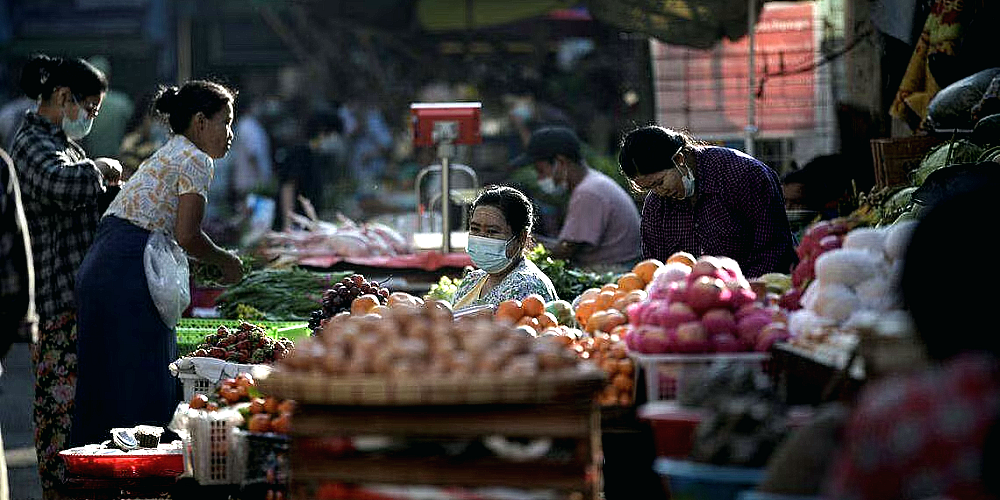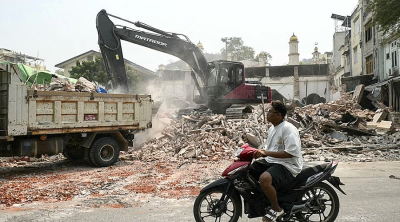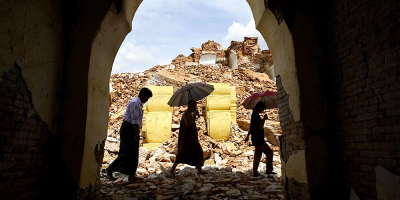YANGON: Rolling power cuts and the Myanmar junta’s restrictions on businesses and foreign exchange are hampering the country’s economy, the World Bank has said.
The Southeast Asian nation has been in turmoil since the military ousted democratically elected civilian leader Aung San Suu Kyi from office in a 2021 coup.
Fighting between the junta and its opponents has ravaged swathes of the country and displaced more than one million people, according to the United Nations.
Economic conditions in Myanmar showed “tentative signs of stabilization” in the first half of 2023, the World Bank said in an update released on Tuesday.
Food and fuel inflation appeared to be cooling, and manufacturing output and new orders had risen since the start of the year, it added.
But Myanmar’s GDP was still around 10 percent lower than in 2019, the World Bank said, warning that its economy would be “permanently scarred” by the fallout from the coup.

Since the beginning of the year, junta authorities have introduced more requirements for export and import licenses, and tighter regulations of fuel imports, it said.
A US dollar on the open market fetches around 25-30 percent more than the central bank’s fixed rate, adding to the pressure on businesses.
The World Bank said businesses were finding it hard to access foreign exchange, inputs and trading licenses.
Power cuts also hit economic activity in 2023, with 42 percent of all firms reporting blackouts as the most “significant constraint to their operations in March,” it added.
Such cuts are common in Myanmar due to a creaky and outdated electricity grid, with demand regularly outstripping supply during the sweltering summer months.
The junta has blamed the worsening outages on rising gas prices and attacks on infrastructure by anti-coup fighters.
The World Bank predicted three percent growth for the year ending September 30.
Myanmar saw its GDP grow 6.8 percent in 2019, according to the World Bank, before the coronavirus pandemic hit.
ADVERTISEMENT
ADVERTISEMENT








































